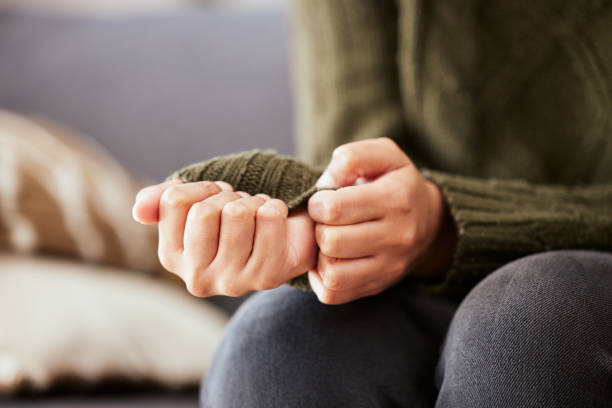
At Tulsi Wellness Club in San Diego, our naturopathic prociders dedicated to exploring the intricate connections between mental and physical health. One question that often arises is whether anxiety can contribute to dry eyes. While dry eyes are commonly associated with environmental factors or medical conditions, understanding the impact of anxiety on this issue can provide valuable insights and support. Let’s delve into how anxiety might influence dry eyes and what you can do to manage both.
Understanding Dry Eyes
Dry eyes occur when the eyes do not produce enough tears or when the tears evaporate too quickly. This condition can lead to discomfort, irritation, and redness. Common causes of dry eyes include prolonged screen use, dry or windy environments, and certain medical conditions like Sjögren’s syndrome or rheumatoid arthritis.
Link Between Anxiety and Dry Eyes
Emerging evidence suggests that anxiety might play a role in the development or exacerbation of dry eyes. Here’s how anxiety could impact your eye health:
-
Increased Blink Rate: Anxiety and stress can lead to changes in blinking patterns. During periods of heightened stress or anxiety, individuals may blink less frequently. Blinking is crucial for spreading tears across the eye's surface, so reduced blinking can contribute to dryness and discomfort.
-
Elevated Cortisol Levels: Anxiety triggers the release of cortisol, a stress hormone. Elevated cortisol levels can affect various bodily functions, including the production and regulation of tears. Chronic stress and high cortisol levels might impair the tear glands' ability to produce sufficient tears.
-
Hyperventilation and Breathing Patterns: Anxiety often leads to rapid or shallow breathing, known as hyperventilation. This altered breathing pattern can cause increased evaporation of tears, contributing to the sensation of dry eyes.
-
Medication Side Effects: Medications used to manage anxiety, such as certain antidepressants and anti-anxiety drugs, can have side effects that impact tear production. Some medications might reduce the effectiveness of the tear film, leading to dryness.
-
Focus on Eye Discomfort: Anxiety can heighten your awareness of physical sensations, including discomfort in your eyes. When you're anxious, you might become more sensitive to eye dryness, making the condition feel more pronounced.
Managing Dry Eyes and Anxiety
If you’re experiencing dry eyes and suspect that anxiety might be a contributing factor, consider these strategies to help manage both issues:
-
Practice Stress-Reduction Techniques: Incorporate relaxation practices such as mindfulness meditation, deep breathing exercises, and yoga into your daily routine. These techniques can help lower stress levels, reduce anxiety, and promote overall well-being.
-
Maintain Regular Blink Rates: Be mindful of your blinking patterns, especially during activities like reading or using screens. Taking regular breaks and consciously blinking can help spread tears more evenly and reduce dryness.
-
Stay Hydrated: Drinking plenty of water can support overall hydration and help maintain the moisture balance in your eyes. Proper hydration is essential for tear production and eye health.
-
Use Artificial Tears: Over-the-counter artificial tear drops can provide temporary relief from dry eyes. Choose preservative-free options to avoid further irritation, and consult with an eye care professional for recommendations tailored to your needs.
-
Consult with Healthcare Professionals: For personalized support, consider consulting with both an eye care specialist and a mental health professional. They can help you address the physical aspects of dry eyes as well as provide strategies to manage anxiety effectively.
Holistic Approach to Anxiety Caused Dry Eyes
At Tulsi Wellness Club, we believe in a holistic approach to health that recognizes the interplay between mind and body. By understanding how anxiety might influence dry eyes, we aim to provide comprehensive support to enhance your overall quality of life.
If you’re struggling with dry eyes and anxiety, we invite you to reach out to our team at Tulsi Wellness Club. Our experts are here to help you navigate these challenges and develop a plan that addresses both your physical and emotional health.
For more information or to schedule a consultation, please contact us at Tulsi Wellness Club in San Diego. Together, we can work towards achieving a balanced and healthy life.
Dr. Klea Doko
Contact Me


